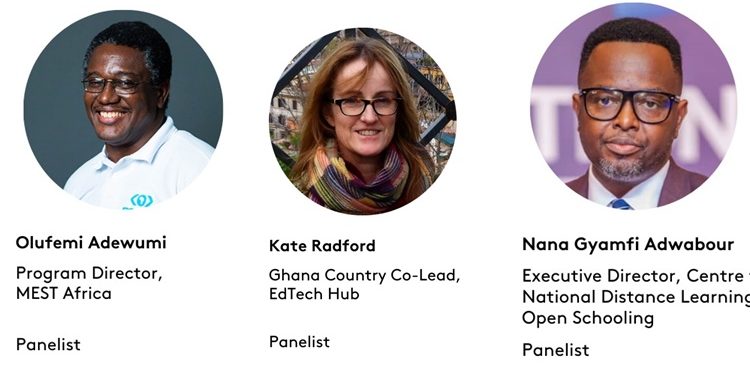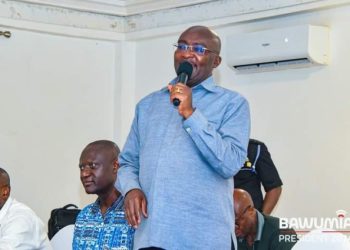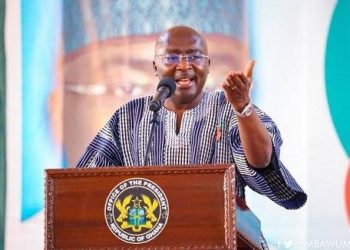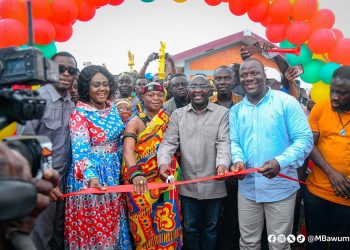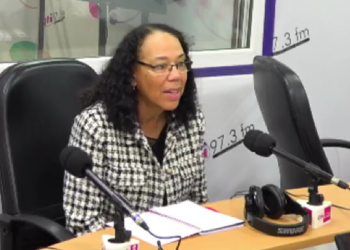Stakeholders in the education technology industry have raised concerns about the challenges that African innovators in the industry face.
They acknowledged the efforts made by the Ministry of Education in bridging the gap. However, they highlighted the challenges that seem to have hampered the progress of education technology in some African countries, including Ghana.
In a discussion on the August 28, 2023 episode of Edtech Monday on the Citi Breakfast Show with Nathan Quao, Kate Radford, Ghana Country Co-Lead of Edtech Hub, enumerated funds, procurement, and connectivity as some of the gaps in the education technology industry.
Kate Radford acknowledged the adaptability of teaching and learning content in schools by Ghanaians. She also remarked on the efforts by the Ministry of Education to ensure that they inculcate education technology in teachers and students, and also build the capacity of its staff, ecosystem, and the private sector.
“The Ministry is making sure that teachers take education technology seriously, and is building the capacity of teachers, the ecosystem, and the private sector. There is a lot of teaching and learning content that has been adopted by Ghanaians. This is a great sign for education technology in Ghana.”
“However, there is not enough evidence about what works. What works means what actually creates changes in our education technology. Technology is one component, but what you need in schools, what you need in ministries, to ensure that education technology can be met is a challenge. It is a challenge to have the funds and time to invest in research about what works and can be adopted.”
“Connectivity obviously remains an issue. We need to use technology that is fit for purpose, can be paid for, and can be accessed by teachers, parents, and students. Procurement is also an issue. I think procuring education technology programs such as difficult products could also be a challenge.”
On his part, the Executive Director of the Centre for National Distance Learning and Open Schooling, Nana Gyamfi Adwabour, also acknowledged that education technology has progressively developed and highlighted some gaps that need to be addressed by innovators.
“The level of education technology has increased at the Ministry of Education. At first, there was a lot of fragmentation, with many agencies operating in silos. But now we are bringing them all together.”
“There needs to be a policy to govern that space. We need to make sure there is a policy for teachers, a policy for the framers of the policy, a policy for students, and a policy for administrators. We are working on a policy that will capture artificial intelligence and robotics.”
“Students should be able to leverage on the use of infrastructure to study, thereby bridging the digital divide. Most African countries could collaborate. The connectivity deficit needs to be fixed. Content has to be digital so that teachers can use it to teach. We need to make sure we have assessment tools that speak to our benchmarks, and capacity building for teachers and students.”
Director of Programmes at MEST Africa, Olufemi Adewumi, noted that the ecosystem for education technology is at its peak and that more attention is needed in the provision of solutions to develop the education technology industry.
When asked what the future looks like, he said, “I think the future is bright, but we need to move away from the mindset of being recipients and become part of the solutions. There are a whole lot of education technology solutions out there. On YouTube, there is Ghanaian content teaching mathematics. There are many Ghanaian start-ups and apps on the Google Play Store or the iPhone. Parents should also take that initiative.”
About MEST
MEST offers Africa-wide technology entrepreneur training, internal seed funding, and a network of hubs providing incubation for technology startups in Africa.
Founded in Ghana in 2008, MEST provides critical skills training, funding, and support in software development, business, and communications to Africa’s tech entrepreneurs. Hubs are located in Accra, Ghana; Lagos, Nigeria; Cape Town, South Africa; and Nairobi, Kenya.
To date, MEST has trained over 500 entrepreneurs from across the continent and invested in over 80 startups across industries from SaaS and consumer internet, to eCommerce, Digital Media, Agritech, Fintech and Healthcare IT.
MEST is primarily funded by the Meltwater Foundation, the non-profit arm of Meltwater, a global leader in media intelligence and Outside Insight.

